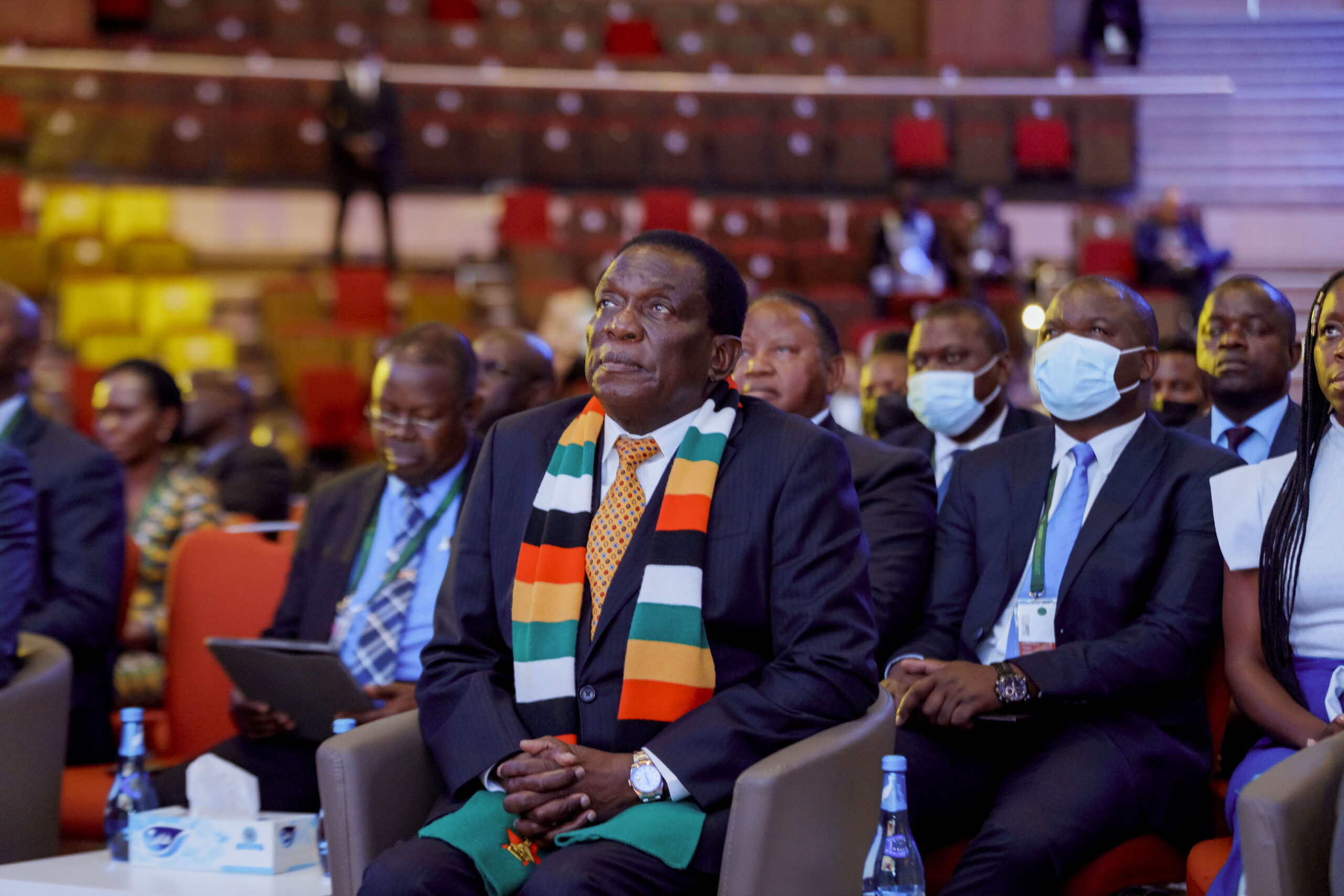YOUTH TOWN HALL GIVES A VOICE TO THE YOUNG

The Youth Town Hall event, held today at the AGRF 2022 Summit in Kigali, Rwanda, saw policy makers, NGO leaders, business leaders and young entrepreneurs come together, providing a platform for young people to articulate their issues, challenges and aspirations within the agri-food space and to pose their questions to those leading the charge.
With an opening section celebrating the winners of this year’s GoGettaz competition, the session rapidly took on the dynamic and vibrant nature of Africa’s young entrepreneurship scene, reflecting the innovative and exciting potential of these individuals and their work. Nozipho Mbanjwa told attendees, “This is all about celebrating young agripreneurs who are really pioneering African solutions.”
As the applause wound down, Edson Mpyisi, Chief Financial Economist and Coordinator of ENABLE Youth at African Development Bank Group, took to the stage and had two messages for the young people in the room. Firstly, that everyone is truly rooting for them. He also urged them not to try to do everything alone. “Reach out for support” was his parting message.
Next was Amade Miquidade, the Ambassador of Mozambique in Rwanda, who for the most part, addressed the audience in his native Portuguese – he told the young attendees that this really is the time to build the future. A time in which we have multiple tools at our disposal, including developing technologies and various means of obtaining information. He highlighted that we can constantly learn from different people and different countries. In his words: “The youth mustn’t sit down and wait for others to draw and make policy – you must build the capacity for implementing policies that will help make the future you want.” He went on to make the point that to embark on further education and study doesn’t mean it’s imperative to follow a theoretical course – making the point that learning the technical aspects of producing crops has as much use and merit as studying to be a doctor or white collar worker.
What followed was an ambitious and inquisitive conversation between the young founders and co-founders of some of Africa’s most exciting new agribusinesses. The issues raised varied; from the difficulty in getting access to Africa’s governments, and therefore, appropriate agribusiness funding and technology; to unfair competition in markets where global imports account for a huge proportion of the country’s food.
Ronald Diang’a, CEO of Kenarava – a business advisory company – realised after undertaking training in Israel, that there is a big gap in support and advisory services that are youth-led and youth- centric.He was keen to argue that governments need to take a contemporary, technology-led approach in order to push young agripreneurship forward. He insisted that within government interventions, investments and strategies,modern technologies be wholly embedded – so that young people can do business their way, with the tools they know, and thrive.
Other panelists agreed, strongly acknowledging that a technology-centric approach to agriculture will be paramount to success in the sector. Other ideas included stipulating that government policies must hold a commercial advantage for young entrepreneurs in agriculture. For example, decreasing tax burdens, or ensuring that banks feel the need to provide competitive advantages in terms of funding and investment for youth agripreneur projects.
The conversation turned towards reach, education and marketing around nutrition and of the local, healthy food that is available to our populations. As one panellist stated, producing healthy and nutritious food is one thing – but the challenge is then how to sell it, and how to reach people to educate them on its benefits? There is a need to shift mainstream consumer behaviour, and to do so at scale. Dr Florence Sibomana, Senior Program Officer on NCDs at PATH Rwanda &Youth Leader for Nutrition-SUN Movement, added, “it’s about advocating distinct branding strategies with help from governments, to help improve knowledge amongst the people on health and nutrition choices.”
Next was the question on how policymakers equip players with a high-potential market, ensuring local producers and agripreneurs can enter markets easily – instead of competing with multinational giants stocking shelves all over the world. Around 90% of food on supermarket shelves in Africa is currently imported. The answer? That it will require more than one approach: firstly, food security at a local level. Secondly, resolving supply chain issues – there is a distinct lack of skills in this area, and in marketing too. Dr Sibomania remarked on the need to upskill farmers on communication with supermarkets and hotels, to ensure their products are stocked and sold to customers. The same goes for reducing post-harvest loss. Governments, individuals and startups must prioritise the harnessing and dissemination of best practices in these areas – in a way that builds on current expertise, rather than constantly reinventing the wheel.
The big question that resounded and was returned to, was, ultimately, how young people create and sustain a productive dialogue with their governments. Kombo Ekra Noël N’guessan, Founder of LONO, challenged the Ambassador on what Mozambique is doing to help with the common frustration of having to communicate with multiple government ministries as an agricultural startup. In other words, how do we ensure the linkage between those responsible for land, energy and water, in order to facilitate the work of leading agripreneurs?
Miquidade’s final commentary focused on the Mozambican government’s efforts to greenlight funding from financial institutions, as well as the provision of and access to high-value equipment for early-stage startups.
As Dr Agnes Kalibata made her closing remarks, she told attendees, assuredly, that “Africa has no future if its future is not about investing in young people.”
Her message to everyone present was that Africa must insist on this mission to feed itself – because if not, by 2030 we will be a poor continent. And her message to the young population? “Remember – nothing about us, without us. Don’t allow anybody to determine or mess with your future. You have a voice.”









